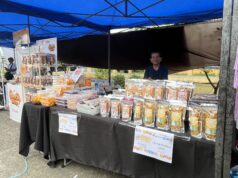CLARK FREEPORT – After controversies on galunggong importation, now it’s sugar and molasses.
The National Federation of Sugar Workers (NFSW) expressed yesterday “vehement opposition” to the government’s plan to import 300,000 more tons of refined sugar supposedly to combat inflation.
It also expressed objection to the proposal of bioethanol companies to import molasses.
The NFSW has asked the government to stop the importation of sugar and molasses, divert sugar for export to the local market, put sugar and basic agricultural products like rice under price control, raise the daily wage of sugar workers to P750 a day, and scrap the TRAIN law.
NFSW said in a statement that “bioethanol producers under the Center for Alcohol Research and Development (CARD) have requested the Sugar Regulatory Administration (SRA) to import more molasses as feedstock to meet the annual demand of 500 million liters of bioethanol as the country can only supply 60 percent of the product.”
“But data from the Philippine Statistics Authority reveal that the country has already increased its importation of molasses from 198,000 tons in 2015 to 484,000 tons in 2016,” it noted.
NFSW secretary general John Milton Lozande said “such importations would further reduce the already slave-like wages of the 780,000 sugar workers or even lose their jobs. As this would lower the prices of local sugar and molasses, and to cut costs sugar planters would simply lower the wages of their workers or retrench them. Sugarcane both produces sugar and molasses.”
“At present sugar workers in Negros who number 335,000 only earn an average monthly income of P1,500 to P2,000 per month and which translates to just P30-P67 per day. As such it is a common occurrence that sugarcane worker families are forced to work together in many haciendas making a family unit as the basic work force in many sugarcane plantations,” he lamented.
Lozande also said that in Cagayan Valley, where sugar and molasses are also produced, sugar workers earn only an average of P170 a day.
“There is also a tiempo muerto or dead season from June to September, where there is hardly any work for sugar cane workers,” he said.
Lozande also said “the already miserable lot of the sugarcane workers under the oppressive hacienda system is further aggravated by the implementation of the Tax Reform Acceleration and Inclusion or TRAIN Law in January 2018 which resulted to unending price hikes of basic commodities used daily by ordinary people including sugar workers.”
At the same time, small sugar planters owning up to 10 hectares of land each would also be affected by the importation of said sugar products as this would lower the price of the crop that they are producing. They number more than 70,000 and comprise more than 79 percent of the total number of sugar planters, he added.
“Only big landlords, millers, bioethanol manufacturers and traders who are advocating for said importations of sugar and molasses would benefit from this scheme,” he said.
This, even as Lozande also noted that the SRA already earlier approved the importation of 200,000 tons of sugar for coca cola and confectionery exporters. Importations would thus amount to 500,000 tons, he said.




